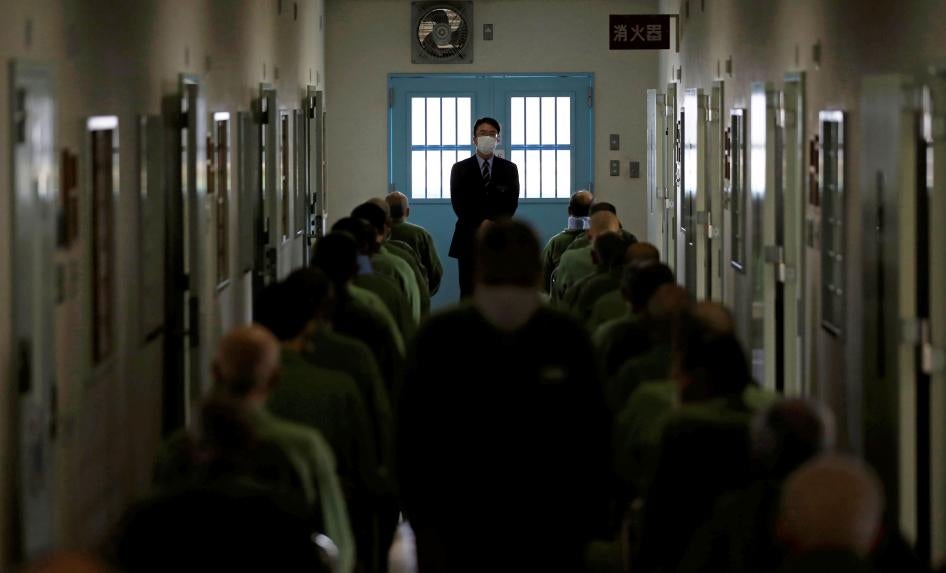Japan’s prison and detention system currently lacks the ability to adequately identify, test, treat, and quarantine prisoners, detainees, and staff infected with Covid-19. Multiple prisoners in Japan often share a single room, creating a grave risk of infection.
“The risk of Covid-19 spreading is particularly high in detention centers because people are housed close to each other and ‘social distancing’ is difficult,” said Kanae Doi, Japan director at Human Rights Watch. “An outbreak of Covid-19 in Japan’s prisons could be deadly, as there has been a growing proportion of older prisoners and a shortage of doctors and nurses for prison health care.”
The Japanese government should release the large number of people arrested or imprisoned for minor offenses, such as shoplifting and narcotics use, as well as those at a higher risk of serious illness if they contract the virus, Human Rights Watch said. Those at greater risk include older people, people with underlying medical conditions, and pregnant women and girls.
“Being jailed or imprisoned in Japan effectively should not become a death sentence because of Covid-19,” Doi said.






